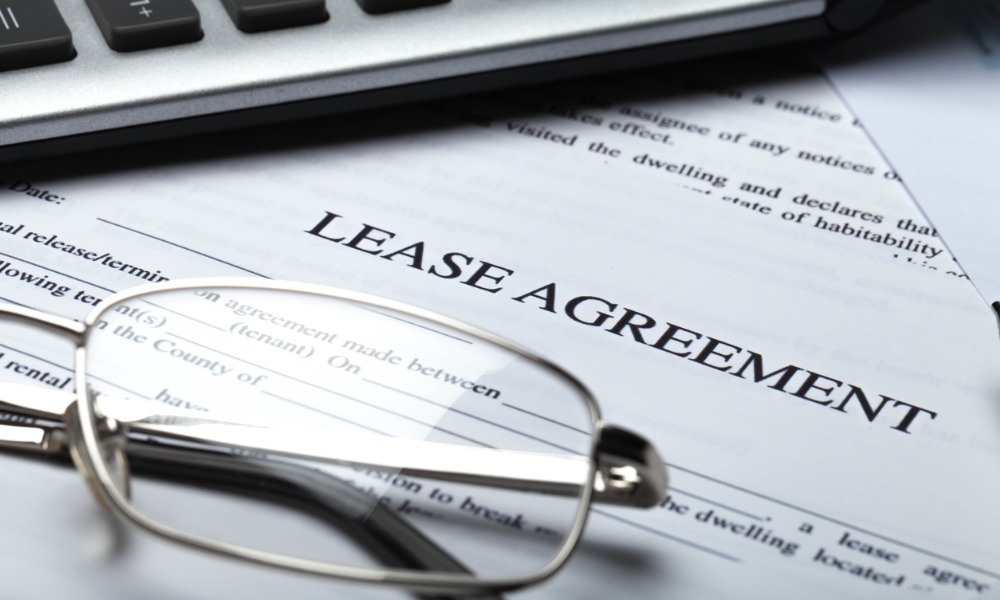Big things start small – and this includes disputes between landlords and tenants. Small disputes, which lead to a sour relationship, could have been avoided if there’s a clear lease contract for rental property.
Whether you’re a landlord or a tenant, creating the perfect rental or lease contract is important for both parties. With the help of a property leasing lawyer and enough knowledge on lease contracts for rental properties, a contract that will protect the rights of both landlord and tenant can be achieved.
What are lease contracts for rental property in Canada?
When landlords and tenants enter an agreement on a lease or rental of a property, they would be executing a lease contract for rental property to finalize the deal. This contract covers all kinds of property – whether it is a residential or commercial one.
In lease contracts for rental property, the landlord (also called the lessor or the property owner) grants the tenant the right to use and occupy a property. The tenant (also called the lessee or the renter) agrees to pay the landlord according to their contract.
When disputes between the landlord and the tenant arise in the future, a lease contract for rental property will help by providing them with steps to take to resolve the dispute. This is the fairest possible way because the parties agreed to the contract which came before the dispute arose.
Canadian laws about lease contracts
Contracts in Canada are governed by common law and the Civil Code of Québec. It then follows that the drafted lease contract for rental property must abide by its allowed legal form.
The law also governs how landlords and tenants should treat this contract.
Legally binding agreement
Contracts are legally binding agreements. When a contract has been agreed by both parties (the tenant and the landlord), it must be strictly followed and respected.
It also means that the party who breached or violated the terms and conditions of the contract can be held liable for damages by the other party.
Agreements are formed when a landlord offers to another a rental or lease offer, and when that person accepts such offer. To understand more about how agreements are “legally” formed, watch this video:
Hear more from a property leasing lawyer if you’re curious about the other implications of legally binding lease contracts for rental property. If you’re from Montréal, reach out to any of the Lexpert-Ranked best property leasing lawyers in Quebec to find out more.
Free to contract
Landlords and tenants are free to include whatever terms and conditions they want in their lease contracts for rental property.
The only prohibition is those in violation of:
- accepted ethics or public order,
- Canada’s Criminal Code, and
- other federal and provincial laws.
What must be included in a lease contract for rental property?
First, it’s important to have your contract checked or drafted by a property leasing lawyer. Here are some of the important details that lease contracts for rental property must have:
Parties to the Contract
While it’s obvious that the landlord and the tenant should be included in lease contracts for rental property, other parties involved in the transaction must also be included.
Other parties involved may include the guarantor of the tenant. This is important since a guarantee must be in writing for it to be valid. By the guarantor’s signature to the lease contract, the landlord is assured of the guarantor’s consent.
When there are multiple tenants involved, they must also be included in the contract.
Term of the Contract
An important detail in a lease contract for rental property is its term or duration. While some provinces may require several years before a lease agreement may be put into writing, it’s still wise to put it into a contract, nonetheless.
Termination and Renewal
In addition to the term, the contract must also specify whether the contract can be renewed, and how. Landlords must specify conditions for renewal, or the specific circumstances which will terminate the lease contract after the term.
Rental or Lease Payments
Another important part of a lease contract for rental property is the monthly payment. As much as possible, the contract must specify the amount to be paid, when it must be paid, and the modes of payment acceptable to the landlord.
Other details as to payments may include:
- Security Deposit
- Maintenance or Repairs
- Utilities and Services
It is critical that the contract specifies who’s going to pay what. Every minute detail must be spelled out; otherwise, this may just be a cause of disputes because of a vague contract.
Rules and other Regulations
The rules and regulations that landlords wish to impose on their tenants must also be clear in the contract. Some rules that landlords and tenants must agree on may include:
- Smoking
- Pets
- Parking
- Storage
Landlords may impose any prohibitions as long as they’re not in violation of any law. When tenants accept the contract, they must also faithfully abide by it.
Are lease contracts for rental property mandatory in Canada?
Some provinces may require that lease contracts follow a prescribed format or template. For example, Ontario requires that residential tenancy agreements must be contained under its Standard Form of Lease. Québec also requires that all new leases must use the government’s standard lease form.
The forms released by other provincial governments, such as British Columbia, are not mandatory but serve as a guide for both landlords and tenants. It’s still prudent to put any lease agreements into writing to protect all parties involved.
Need help in drafting lease contracts for rental properties? Consult the best property leasing lawyers in Canada as ranked by Lexpert.





